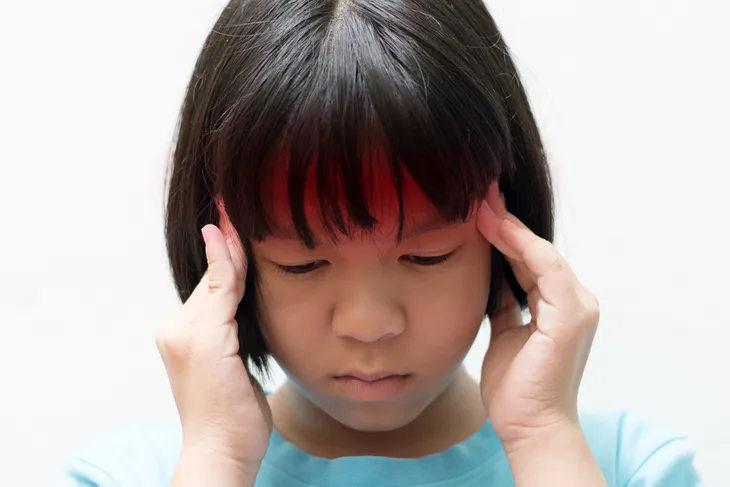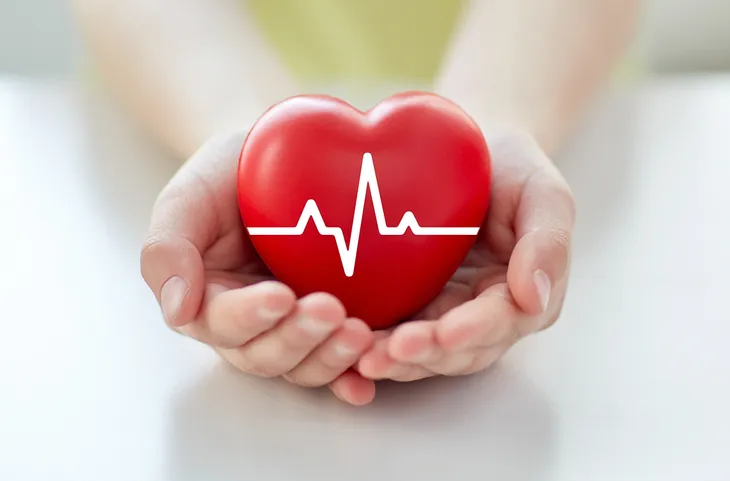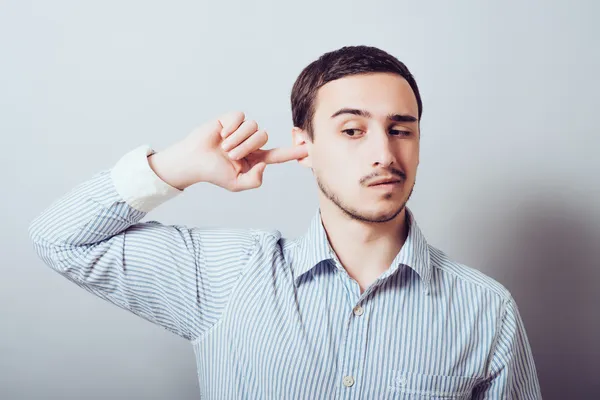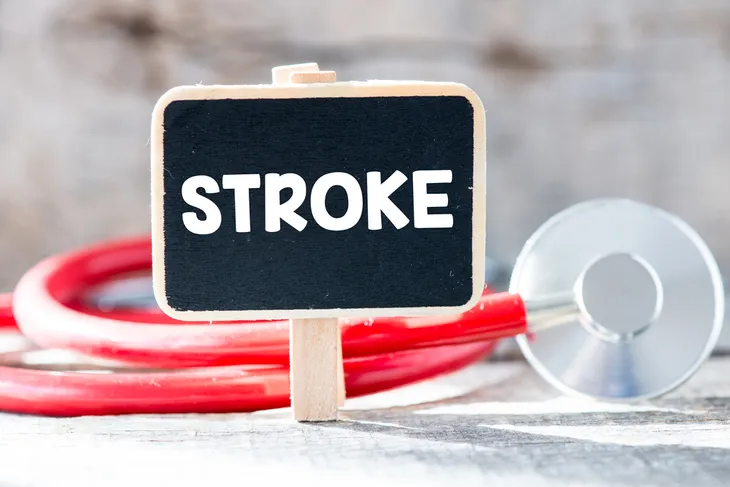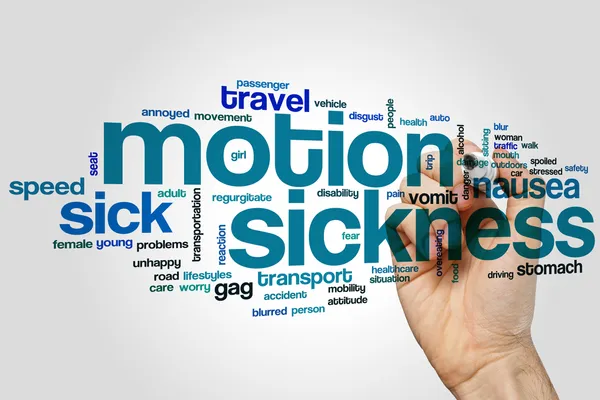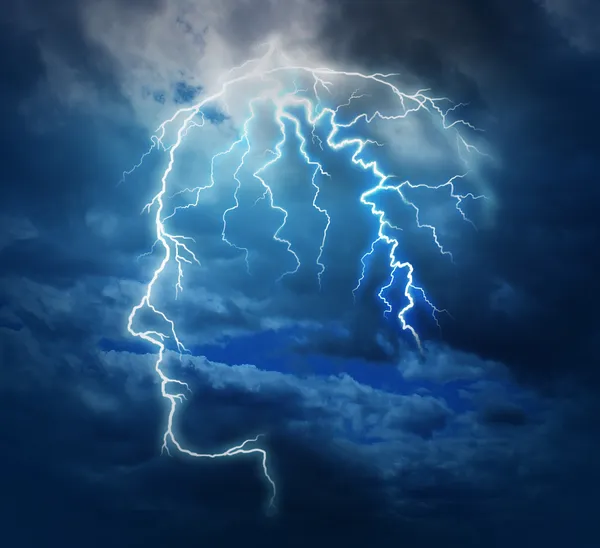It happens to all of us at one time or another—we get a bit dizzy for a moment and have to brace ourselves. Well, maybe not everyone, but many of us will have the occasional feeling that we’re off-kilter. This can be a very temporary feeling, or it can be a recurring health problem that may need medical attention. If you often feel like the earth is spinning or that you can’t get your bearings, then you should probably see a doctor.
Here are 18 potential health reasons behind dizziness…
1. Vertigo
This is a chronic condition that gives you the sensation that the world around you is spinning (which it is, but…you know what we mean). WebMD explains that vertigo is often caused by an inner ear problem.
Because it’s linked to an inner ear imbalance, vertigo can be broken down into subcategories, notes the source. These include benign paroxysmal positional vertigo (BPPV), caused by calcium particles clump in the inner ear; Meniere’s disease, thought to be a buildup of fluid and changing pressure in the ear; and vestibular neuritis, which can be related to a viral infection of the inner ear.
2. Anemia
This is a condition caused by a lack of red blood cells which carry oxygen to vital parts of your body. Anemia can have a variety of symptoms ranging from fatigue to irregular heartbeats but, according to the Mayo Clinic, feeling dizzy is a common side effect as well.
Anemia is a reason to see your doctor. It may be the result of your body not replacing red blood cells quickly enough after bleeding, or your body outright destroying these vital cells. In any case, you should have it checked to determine the root cause.
3. Low Blood Sugar
Healthline explains that not enough sugar in your blood, also known as hypoglycemia, can actually be a dangerous condition, especially if you’re diabetic. This is why the source lists this as a medical emergency as well as a source of dizziness.
In diabetic patients, taking too much medication can actually deplete glucose levels in the blood. You can also have low blood sugar if you skip meals or exercise more than usual (especially for diabetic patients).
4. Magnesium Deficiency
This mineral is important to your overall health, and also aids in processing proteins and controlling nerve functions. So, it makes sense that, if you’re not getting enough magnesium, your body will tell you sooner rather than later.
Livestrong.com notes that many Americans don’t get enough magnesium in their diet, and one of the symptoms is often vertigo, as noted earlier, which is a loss of balance and dizziness. Talk to your doctor about taking magnesium supplements if you have symptoms.
5. Dehydration
Many Americans are walking around in a constant state of dehydration, not taking the time to drink a glass of water (or remembering to due to a busy schedule). Many factors can lead to dehydration, but consuming adequate liquids is a pretty sure fix.
The Huffington Post says instead of water, you may want to reach for some orange juice if you’re having a dizzy spell. This is because it will deliver some sugar, and we’ve already covered how low blood sugar can contribute to feeling off balance. If you’re able, lie down and relax for a few minutes after consuming water or juice.
6. Meningitis
This is a potentially life-threatening infection of delicate membranes in your body called meninges, which cover your brain and spinal cord. There are bacterial, viral, and fungal versions of meningitis (the latter being the most rare).
Some of the symptoms of this disease are fever, persistent headaches, stiff neck, and confusion. WebMD lists dizziness among the lesser common symptoms of meningitis, but it’s best to be checked over by a doctor just in case.
7. Low Blood Pressure
You often hear about the bad effects of high blood pressure, but the opposite side of the coin (low blood pressure) can have health impacts as well (i.e., feeling dizzy). A number of factors, such as heart troubles or a severe infection, can contribute to low blood pressure.
Have you ever stood up quickly after sitting for a while and felt like you were going to fall over? That’s also a sign of low blood pressure (if only temporary). However, if this happens to you regularly, it could be a reason to book an appointment your doctor.
8. Anxiety
Anxiety or panic attacks—the feeling of being overwhelmed—can make you feel lightheaded as well, notes CalmClinic. “Feeling dizzy is easily one of the most disruptive symptoms of anxiety.”
These panic attacks can be alarming to people, especially if they haven’t experienced this symptom of anxiety before. You may feel dizzy from associated hyperventilation (breathing too quickly) or feel a rush of adrenaline from the panic. Anxiety-related dizziness feels horrible, but it is not dangerous.
9. Abnormal Heart Rhythm
Healthline lists abnormal heart rhythms in its list of possible explanations for being dizzy. It says an abnormality is when your heart beats too fast, slow, or not at a steady pace (also called an arrhythmia). “Arrhythmias can cause no symptoms, or you may feel discomfort, fluttering, pain, or pounding in your chest,” adds the source.
The site also puts a disclaimer that if you’re experiencing an abnormal heartbeat, it’s considered a medical emergency and you may need urgent care. Especially since Healthline lists congestive heart failure and heart attack under conditions related to dizziness, both of which are obviously not to be taken lightly.
10. Labyrinthitis
WebMD explains this condition affects the labyrinth, which is the part of the inner ear that usually controls your balance. The condition is characterized by swelling and inflammation in the labyrinth.
The inflammation can cause sudden vertigo, which we’ve already noted earlier. Along with losing your balance and having a spinning sensation, you may also experience temporary hearing loss and ringing (tinnitus) in your ears. You may also experience nausea as a result. The cause of this condition isn’t clear, but it may occur after a viral infection.
11. Blood Pressure Medications
The American Heart Association (AHA) notes that high blood pressure itself won’t cause you to feel dizzy. In fact, most cases high blood pressure don’t present with any obvious symptoms, which is why it’s important to have it checked periodically.
However, if you’re taking medications to control your high blood pressure, you may experience dizziness as a side effect. But even if you think it’s just a side effect, the association warns “dizziness should not be ignored, especially if the onset is sudden.” It could be a stroke, which we’ll cover next.
12. Stroke
The same source explains that brain stem strokes in particular don’t always have obvious signs, such as the weakness on one side of the body. A person suffering this type of stroke can experience vertigo and dizziness without the “hallmark” symptoms associated with a hemispheric stroke.
Dizziness alone is not a sign of a stroke, but dizziness accompanied by vertigo and imbalance could be. “Brainstem stroke can also cause double vision, slurred speech, and a decreased level of consciousness,” adds the AHA. If you’re having dizziness accompanied by other symptoms mentioned in this article, then you might be wise to get medical help quickly, as the faster a clot causing a stroke is dealt with, the better the chances for recovery.
13. Heat Exhaustion
WebMD says if you’re out in hot conditions for extended periods of time, you can end up with heat-related dizziness. The illness is often accompanied by dehydration, which we’ve already covered.
The source says there are actually two types of heat exhaustion. Water depletion symptoms will include excessive thirst, weakness, headache, and even loss of consciousness. The other type is salt depletion, which is the type that will actually cause you to be dizzy. Other symptoms related to salt depletion are nausea, vomiting, and muscle cramps, which is why sports drinks have electrolytes that are salts. Heat stroke is a progressive form of heat exhaustion and can lead to death.
14. Motion Sickness
Whether you’re in a car, bus, plane, or train, motion sickness can make travelling quite unpleasant. You might feel dizzy or nauseous due to a disturbance occurring in the inner ear. This can happen when your brain receives conflicting messages about motion and your body’s position in space. You might experience motion sickness simply by sitting backwards on a train, sitting in the back seat of a car, or not being able to physically see the turbulence that’s jolting a plane up and down.
There are ways to prevent or minimize motion sickness. This includes not reading your phone or book while in a moving vehicle, using the seat headrest, and drinking plenty of water. There are even some over-the-counter medicines that can be taken to prevent or treat your motion sickness.
15. Anxiety Disorders
There are a number of symptoms related to anxiety, and one of them is dizziness. Psychological changes in the brain could leave you lightheaded, woozy, and feeling like you’re swaying. If someone has an abnormality in the vestibular system, which is a sensory system that senses body position and movement in our surroundings, dizziness can occur. Anxiety and dizziness often go hand in hand and must be treated together to see improvements in health.
16. Migraines
The American Migraine Foundation reports that between 30 and 50 percent of people with chronic migraines will sometimes experience dizziness. Doctors now refer to this as vestibular migraine or migraine-associated vertigo. Sometimes, people will experience dizziness without any head pain before the migraine.
17. Carbon Monoxide Poisoning
Carbon monoxide (CO) is known as the silent killer and dizziness is one of the most common symptoms of CO poisoning. When this odorless and colorless gas leaks, it has the potential to make you pass out or kill you if enough CO is breathed in.
You should have carbon monoxide detectors at home to alert you of a leakage. Along with dizziness, symptoms of carbon monoxide poisoning are flu-like that include headache, weakness, upset stomach, vomiting, chest pain, and confusion.
18. Dizziness in Children
Kids may get dizzy because of similar reasons adults do. This includes dehydration, motion sickness, side effects from certain medications, and reduced blood flow to the brain for a short time that can be triggered by normal events.
Other reasons a child might feel dizzy include:
- Too much sun or hot tub use
- Sweating from sports or hard work
- Standing too long
- Low oxygen
- Viral illnesses like the flu
Make sure to see a doctor or seek emergency medical help if your child is dizzy and their condition doesn’t improve.
 fizkes / Shutterstock
fizkes / Shutterstock19. What To Do When You Feel Dizzy
It’s important to take the right safety measures when you’re feeling dizzy. This feeling can occur without notice, which means you could be anywhere when experiencing dizziness. Knowing how to handle this sickness in the moment will help to ensure you don’t get injured or put yourself in danger.
Here’s what to do if you’re feeling dizzy:
- Sit or lie down immediately.
- Rest until the dizziness goes away.
- If you’re driving, safely pull over to the side of the road and relax until you feel better.
- See a doctor if dizziness persists.
20. When to See a Doctor About Dizziness
For many people, dizziness might be temporary and go away after some time. But others may be experiencing dizziness due to a deeper rooted issue that needs to be checked out by a doctor. Those who have ongoing dizziness should consult a doctor.
According to Healthline, you should seek medical attention if you have sudden dizziness along with:
- A head injury
- A headache
- A neck injury
- A high fever
- Blurred vision
- Hearing loss
- Difficulty speaking
- Numbness or tingling
- Droopiness of the eye or mouth
- Loss of consciousness
- Chest pain
- Ongoing vomiting






